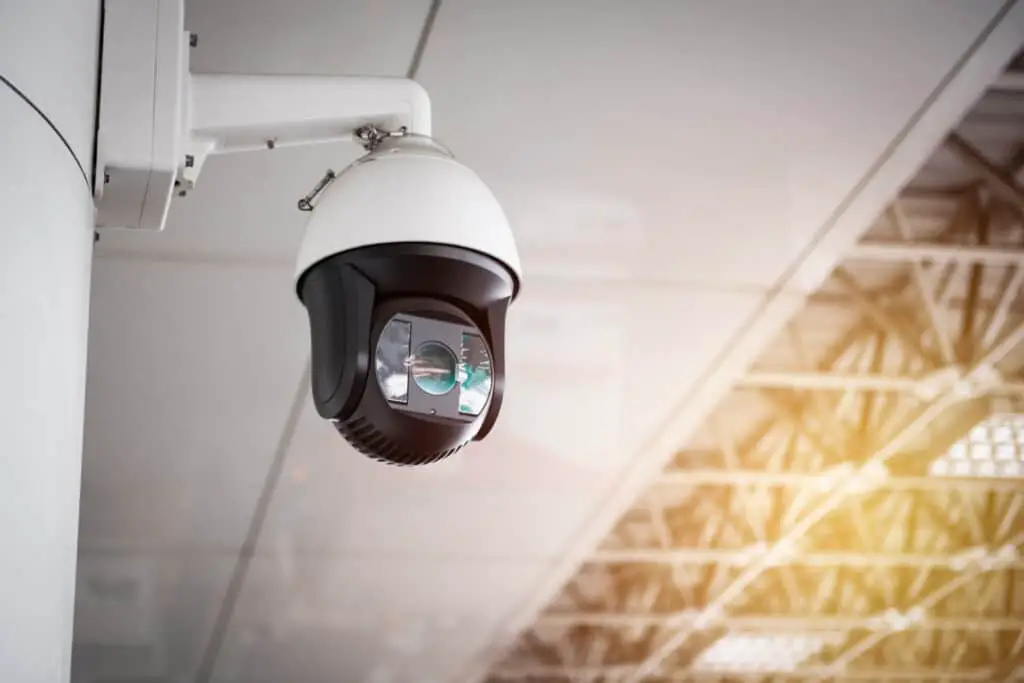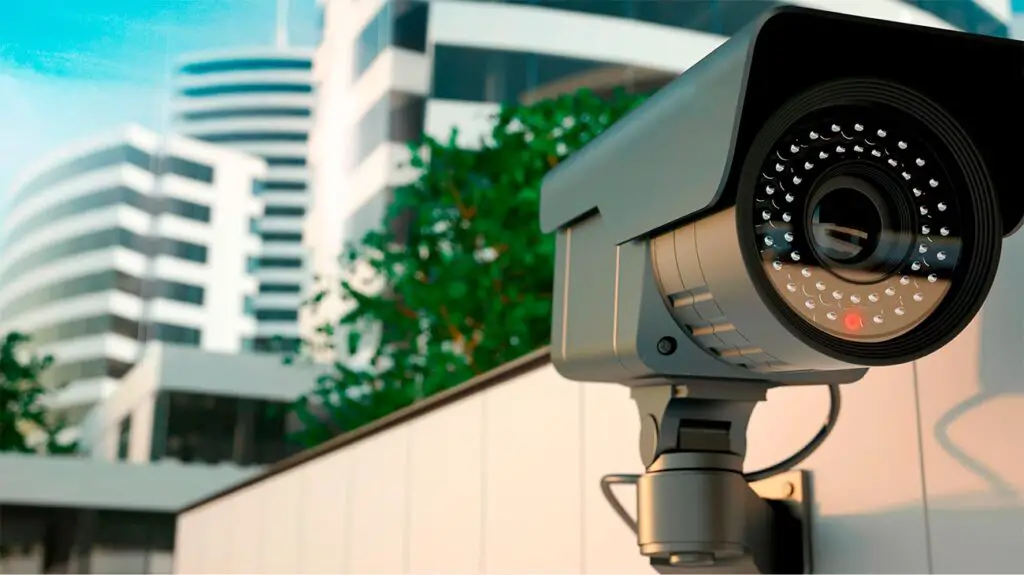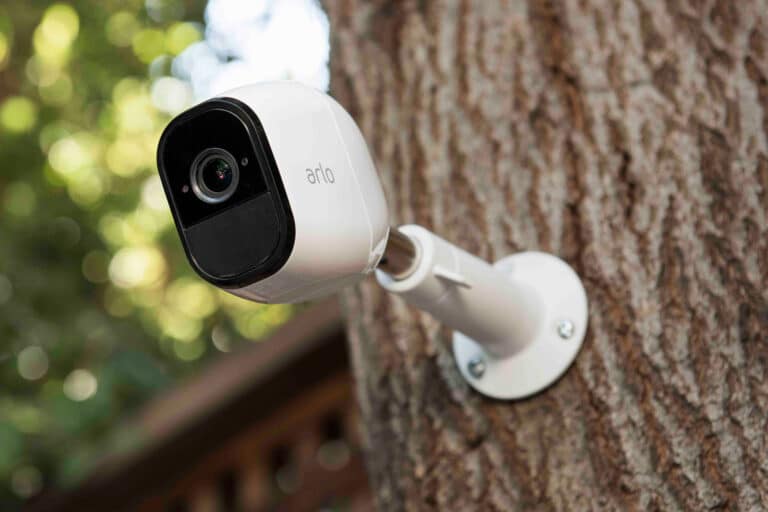Introduction
Can Surveillance Cameras Have Audio: Surveillance cameras have become an integral part of our security infrastructure, providing an extra layer of protection and deterrence against criminal activities. However, the question of whether these cameras should also include audio capabilities is a topic of ongoing debate. On one hand, audio recording can provide additional context to visual footage, potentially aiding in the resolution of disputes or criminal investigations.
On the other hand, it raises significant privacy concerns, as it can potentially capture private conversations without the consent of the individuals involved. The integration of audio in surveillance cameras is not just a technological consideration, but also a legal and ethical one. Laws governing audio surveillance vary widely across jurisdictions, with some allowing it under specific conditions, while others strictly prohibit it.
Ethically, the balance between security and privacy is a delicate one, and the inclusion of audio in surveillance systems can tip this balance in a way that many find uncomfortable. Whether you are a security professional, a policy maker, or a concerned citizen, this discussion will provide valuable insights into the potential benefits and drawbacks of audio-enabled surveillance cameras.

Does surveillance camera record sound?
The simple answer is yes – many security cameras have audio features. Those features usually fall into one of these categories: communication, triggering video recording, audio recording, and surveillance.
Surveillance cameras have the capability to record sound, but whether they do so in practice depends on a variety of factors, including the specific model of the camera, the legal regulations in the area, and the preferences of the individual or organization using the camera.
Technologically speaking, many modern surveillance cameras are equipped with microphones that can capture audio. This can add an extra layer of information to the visual data, providing additional context that can be useful in certain situations. For instance, audio can help clarify the events leading up to an incident, or provide evidence in disputes or criminal investigations.
However, the recording of audio by surveillance cameras is a contentious issue due to privacy concerns. In many jurisdictions, it is illegal to record private conversations without the consent of the parties involved. Laws governing audio surveillance vary widely, and in some places, the use of audio in surveillance cameras is heavily regulated or outright prohibited. Even where it is legal, there are often strict requirements about how the audio data can be used and stored.
What is audio surveillance?
Audio surveillance is an all-encompassing term that refers to the use of electronic devices for remotely listening in on conversations and recording them. It Audio surveillance takes many forms, and each one presents its own set of advantages and disadvantages.
Audio surveillance, also known as audio monitoring or electronic eavesdropping, is the use of electronic devices to monitor and record sound. This can include conversations, background noises, or any other audible events. The devices used for audio surveillance can range from simple handheld recorders to sophisticated systems integrated into a broader surveillance network.
Audio surveillance is used in a variety of contexts. Law enforcement agencies may use it as part of criminal investigations, with the aim of gathering evidence or intelligence. Businesses may use it to monitor interactions between employees and customers, or to ensure compliance with company policies. Private individuals may also use audio surveillance for personal security or as a tool in disputes.
However, audio surveillance is a contentious issue due to the potential for misuse and the privacy concerns it raises. The act of recording someone’s conversation without their or consent can be seen as an invasion of privacy. Cumstances it can be used, and how the recorded data can be stored and used.
What do surveillance cameras do?
Security cameras are designed to deter crime, and surveillance cameras are primarily used for monitoring purposes. Surveillance cameras are usually hidden from the public eye, while security cameras are easily visible inside places of business and other venues.
Surveillance cameras, also known as CCTV (Closed-Circuit Television) cameras, are a key component in security and monitoring systems. They serve multiple purposes, primarily revolving around the observation and recording of activities within their field of view.
One of the primary functions of surveillance cameras is to deter criminal activity. The presence of cameras can discourage potential criminals, as they increase the risk of identification and prosecution. In the event of a crime, the footage captured can provide valuable evidence, aiding law enforcement in their investigations.
Surveillance cameras also play a crucial role in monitoring activities in various settings. In businesses, they can be used to oversee operations, ensure safety protocols are followed, and monitor customer behavior. In public spaces, they can help manage crowds, monitor traffic, and assist in emergency response. It residential areas, they provide homeowners with an extra layer of security, allowing them to monitor their property remotely.
Besides real-time monitoring, security cameras record video for later study. This may aid conflict resolution, event investigation, and pattern analysis. Some sophisticated systems include motion detection, infrared night vision, and face recognition. Surveillance cameras may record people without their permission, raising privacy issues. Thus, their usage is regulated by law and ethics.
What is the difference between CCTV and surveillance cameras?
CCTV cameras will transmit their footage through wired or wireless data networks straight to a monitor either locally or in a distant location. Video surveillance, on the other hand, makes use of a fast ethernet connection to transmit footage where it can then be stored for later access.
CCTV and surveillance cameras are commonly used interchangeably, although their meanings depend on the system they’re part of.
CCTV transmits footage directly to a series of displays through cable or wireless connection. The “closed-circuit” term means the video stream is watched and monitored privately. CCTV is utilized in retail outlets, casinos, and private houses where video is watched on a few displays.
However, “surveillance camera” may apply to any security camera. CCTV cameras and other systems are included. IP cameras give and receive data over the internet, making them surveillance cameras. These cameras may be viewed remotely from any internet-connected device, making them more flexible than CCTV.

Are surveillance cameras safe?
Can Home Security Cameras be Hacked? Any device connected to the internet can be hacked, and that includes home security cameras. Wired cameras are less vulnerable than Wi-Fi cameras, and those with local storage are less vulnerable than cameras that store video on a cloud-based server.
Surveillance cameras are generally safe and play a crucial role in enhancing security in various settings. They deter crime, provide evidence in case of incidents, and allow for real-time monitoring of premises. However, like any technology, they come with potential risks that need to be managed.
One of the primary concerns is privacy. Surveillance cameras can capture individuals’ activities without their consent, which can be seen as an invasion of privacy. To use surveillance cameras responsibly, respecting legal regulations and ethical considerations related to privacy.
Another concern is the potential for cyberattacks. Internet-connected cameras, such as IP cameras, can be vulnerable to hacking if not properly secured. Hackers could potentially gain access to the video feed, manipulate the footage, or use the camera as a gateway to access the wider network.
Are there any legal considerations regarding audio recording with surveillance cameras?
Yes, there are significant legal considerations regarding the use of audio recording with surveillance cameras. These laws vary widely by jurisdiction, so it’s important to understand the specific laws applicable in your area before implementing audio surveillance.
Recording private conversations without authorization is banned in many areas. This is called “two-party consent” and is legal in some states. Other states use a “one-party consent” requirement to record conversations with just one person.
This implies that in certain situations, surveillance cameras can’t capture audio without obvious signs or specific authorization from the individuals being filmed. Audio recording may be illegal in several places, regardless of authorization. Fines and jail time await violators of these statutes. Therefore, you must know and follow local audio surveillance rules.
Can audio recording be disabled on surveillance cameras?
Audio recording on security cameras can usually be deactivated. How to do so depends on the camera type and software. It’s often as easy as turning off the camera’s audio capability in its software settings.
Some security cameras with audio recording should not be used. Sometimes privacy or legal considerations make audio recording useless. In locations where recording conversations without permission is illegal, disabling audio may help.
Understand camera capabilities and control before building a surveillance system. Know how to disable audio recording. For camera functioning questions, consult the user manual, manufacturer, or security professional.
Are there any privacy concerns associated with audio-enabled surveillance cameras?
Yes, there are significant privacy concerns associated with audio-enabled surveillance cameras. While these devices can provide valuable additional context to visual surveillance, they also have the potential to intrude on personal privacy in ways that purely visual surveillance does not.
Audio surveillance can capture private conversations without the consent of the individuals involved. This can be seen as an invasion of privacy, particularly in settings where individuals have a reasonable expectation of privacy, such as in their own homes or in private areas of public spaces.
The potential for misuse of audio surveillance is another concern. For instance, unscrupulous individuals or entities could use audio surveillance to eavesdrop on private conversations for malicious purposes. This could include anything from corporate espionage to personal harassment.
The storage and handling of audio data raise additional privacy concerns. If not properly secured, this data could be accessed by unauthorized individuals, potentially leading to further privacy breaches.

Conclusion
The question of whether surveillance cameras should have audio is not a straightforward one. It’s a multifaceted issue that requires careful consideration of technological capabilities, legal frameworks, and ethical implications. While the of audio can undoubtedly enhance the effectiveness of surveillance video, providing additional context and potentially aiding in the resolution of disputes or criminal investigations, it also raises serious privacy concerns.
The balance between security and privacy is a delicate one. As technology continues to advance, it is crucial that we engage in ongoing discussions about how to best navigate this balance. Legal frameworks need to adapt to these technological changes, providing clear guidelines that protect individuals’ privacy while also allowing for effective security measures.
Public awareness and understanding of these issues are vital. Individuals should be informed about the capabilities of surveillance technologies, the laws that govern their use, and the potential privacy implications. This empowers people to make informed decisions and engage in meaningful discussions about the future of surveillance technology.

